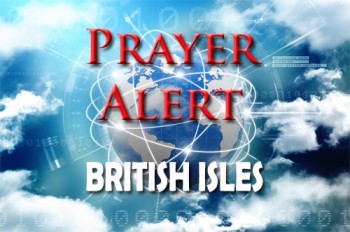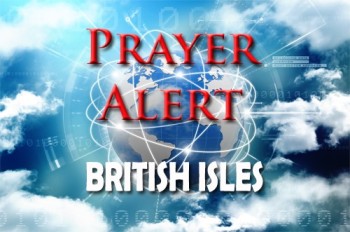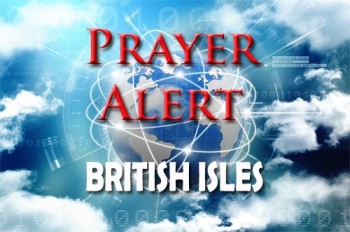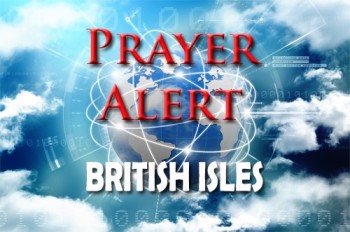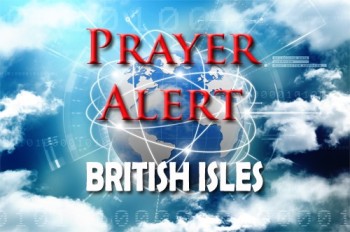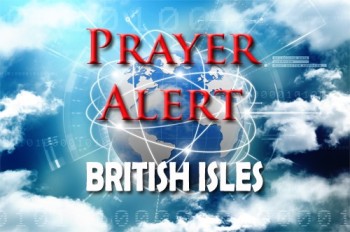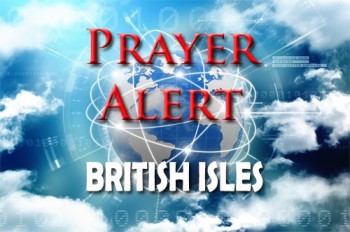Displaying items by tag: Government
Are Starmer’s days as PM numbered amid fury over Mandelson?
Labour MPs have warned that Keir Starmer’s leadership is under serious threat following intense backlash over the appointment of Peter Mandelson as ambassador to the USA. Fury erupted after Starmer admitted he was aware of Mandelson’s past friendship with convicted sex offender Jeffrey Epstein before approving the appointment. A Commons debate nearly ended in government defeat, narrowly avoided through a last-minute amendment forcing the future release of documents relating to Mandelson’s vetting and appointment. Several Labour MPs described a collapse of trust, with some openly questioning whether they could support Starmer in a confidence vote. The mood, described as 'dark' and 'terminal’, has unsettled even long-standing loyalists. MPs warned that once withheld documents are released - currently delayed by a Metropolitan Police investigation - a leadership challenge could follow. Though Starmer has pledged transparency and announced plans to strip Mandelson of honours, and ministers insist he acted in good faith, many MPs fear lasting damage to the government’s credibility and moral authority.
UK and China sign agreements in landmark visit
Keir Starmer has concluded a landmark bilateral meeting with Chinese president Xi Jinping in Beijing, marking the first visit by a British prime minister to China in eight years. The talks, held at the Great Hall of the People, signal a renewed phase of engagement between the UK and China at a time of global economic fragility and geopolitical tension. Starmer described China as a vital global player and spoke of the need for a more mature and sophisticated relationship, while President Xi emphasised long-term partnership and the importance of rising above differences. Discussions covered trade, services, education, healthcare, artificial intelligence, climate change and irregular migration. A series of cooperation agreements were signed, including progress towards visa-free travel for short-term UK visitors and a feasibility study on trade in services. While human rights concerns remain sensitive, the Government argues that constructive engagement, rather than isolation, offers the best route to economic growth, international stability and influence on the global stage.
Government launches £15bn Warm Homes Plan
The Government has launched a £15 billion Warm Homes Plan aimed at expanding solar power, heat pumps, and other green technologies across households over the next five years. The scheme seeks to triple the number of homes with solar panels while increasing uptake of low-carbon heating. It includes a mix of grants and low or zero-interest loans, available regardless of household income. The Boiler Upgrade Scheme will be extended until 2029/30, offering grants of up to £7,500 for air-source heat pumps. An additional £600 million has been allocated to fully fund solar panels and battery storage for low-income households. It is estimated that combining solar, battery storage, and heat pumps could save an average household up to £1,300 a year. The plan is also expected to boost demand for skilled installers, creating opportunities for green-tech businesses and workforce training. Ministers say the programme supports decarbonisation, energy security, and cost-of-living relief, though experts stress the importance of improving insulation alongside new technologies.
MPs debate removal of immunity provision from new legislation
MPs are debating plans to remove the immunity provision from legislation addressing unresolved crimes from the Northern Ireland Troubles. The Government is seeking approval for an order to overturn elements of the previous Legacy Act, including a scheme that would have granted immunity from prosecution to individuals involved in Troubles-related offences in exchange for cooperation with a truth recovery body. That scheme was ruled unlawful and never implemented. Northern Ireland secretary Hilary Benn said the changes are necessary to restore trust among victims’ families and communities who strongly oppose immunity for those responsible for violence and murder. The order would also lift restrictions on bringing new civil claims, reinstating the right of families to seek justice through the courts. In response to concerns among veterans’ groups that this could expose former members of the armed forces to repeated or unfair legal action, the Government intends to introduce safeguards for veterans, including limits on reinvestigation, health protections, anonymity provisions, and alternative ways of giving evidence.
£3.5bn plan to halve homelessness unveiled
The Government has unveiled a £3.5bn national plan to end homelessness, aiming to halve long-term rough sleeping by 2029/30. Housing secretary Steve Reed described homelessness as 'one of the most profound challenges we face’, promising a future where it is 'rare, brief, and not repeated’. The strategy includes a new duty requiring prisons, hospitals, and social care to work together, preventing people from being discharged straight onto the streets. It also pledges to halve first-night homelessness among prison leavers, reduce the number of families living in B&B accommodation, and direct £50m to councils to create tailored action plans. A £124m supported housing scheme is expected to help 2,500 people off the streets. However, charities warn the plan falls short, noting that only £100m of the funding is new and highlighting major gaps, particularly around prevention, frozen housing benefit, refugee support, and the lack of available social homes. MPs and homelessness organisations say the strategy appears rushed and insufficient to meet the scale of need, with record numbers of people (especially children) expected to be homeless this Christmas.
Sri Lanka: cyclone tragedy exposes government failures
The authorities are under intense scrutiny for their handling of Cyclone Ditwah, which has affected more than 1.46 million people across all 25 districts and caused the nation’s worst flooding in two decades. Over 410 people are confirmed dead, hundreds are missing, and tens of thousands are sheltering in overcrowded government centers. Critics argue that officials ignored early warning signs and failed to coordinate a timely, unified emergency response, leaving rescue teams overwhelmed and communication systems fragmented. Severe damage to roads, power networks, and telecommunications has isolated northern districts, complicating relief efforts as water levels continue to rise. Opposition leaders are pursuing legal action, accusing the government of negligence that cost many lives. Further concerns have emerged over inadequate disaster communication in Tamil, which left many without critical information. Despite international aid pledges and a state of emergency, the crisis has exposed major weaknesses in Sri Lanka’s preparedness and response structures, prompting urgent calls for reform. However, there has been an impressive show of ‘volunteerism’ from local communities: see
North Sea energy: Government allows some new licences
The Government has announced a shift in its North Sea energy policy, allowing limited new oil and gas licences - but only where developments connect to existing fields and infrastructure without further exploration. The move marks a softening of Labour's previous pledge to halt new licensing entirely as part of efforts to reach net-zero emissions by 2050. Britain’s oil and gas production has sharply declined since the early 2000s, and further reductions are expected over coming decades. At the same time, the Government confirmed it will keep in place the windfall tax introduced during the energy price surge until 2030, despite strong lobbying from industry leaders who argue it deters investment and threatens jobs. Ministers maintain the tax remains essential to raise funds for the transition to clean energy, and a replacement price-linked mechanism is planned once the levy expires. The debate highlights the complex balance between economic security, climate responsibility and workforce stability.
Poland: partnership with IJM to combat human trafficking
Poland is one of the highest-risk areas for trafficking in Europe, with 209,000 people currently trapped in modern slavery and many more vulnerable due to migration and regional conflict. Women and children make up the overwhelming majority of those exploited for sex. The country’s geography - bordering seven nations and serving as a transit hub - makes it a key route for traffickers. Although Poland has earned top marks from the USA for its commitment to combating exploitation, law enforcement resources remain stretched too thin to meet the growing need for protection. International Justice Mission (IJM), the world’s largest anti-trafficking organisation, has now launched a formal partnership in Poland, building on its success in Romania and other regions. Working with authorities, NGOs, and survivors, IJM will focus on strengthening investigations, ensuring survivor care, and driving systemic change, with the aim of protecting millions from abuse and exploitation.
I have never authorised attacks on ministers, says PM
Keir Starmer has firmly denied authorising anonymous briefings against members of his cabinet after reports suggested some aides believed he could face a leadership challenge from health secretary Wes Streeting. At PMQs, he called such attacks completely unacceptable, insisting he appointed his ministers because they are 'the best people to carry out their jobs’. Streeting, who missed PMQs to address an NHS conference, rejected claims he was plotting a leadership bid and criticised what he described as a 'toxic culture' inside No 10 - though he does not believe the prime minister is responsible. Kemi Badenoch accused Starmer of having 'lost control of his government’, while speculation persists within Labour about who might stand if a contest were triggered. Despite a large 2024 majority, Starmer’s leadership has faced turbulence; with the Budget and devolved elections looming, internal unity is being tested.
Thousands of NHS staff to lose jobs after deal approved
Thousands of NHS administrative and managerial staff in England are set to lose their jobs after the Treasury approved a deal allowing the health service to overspend this year to fund redundancy costs. Earlier, the government confirmed that 18,000 roles would be cut as part of major reforms bringing NHS England back under the Department of Health and halving staff numbers in local Integrated Care Boards. The £1bn cost of pay-offs will be recovered in future years through expected savings, with ministers insisting no additional funding is being provided beyond existing spending plans. Health secretary Wes Streeting argued that patients and staff want bureaucracy reduced so frontline care can be prioritised, saying the reforms would help rebuild the NHS. Government estimates suggest the changes could save £1bn annually, enough to fund over 100,000 extra hip and knee operations. However, the Royal College of Nursing warned that losing expert staff risks harming patient care rather than improving it. NHS leaders have called the agreement 'pragmatic' but acknowledged the uncertainty and disruption facing affected workers.
